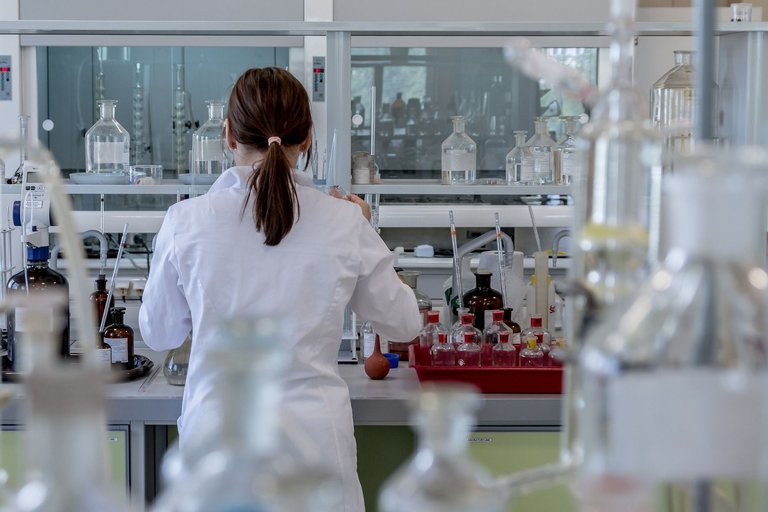Strategies for applying experimentation to the learning process.

Shoutout to jarmoluk and Pixabay.com
In yesterday's article, I talked about the benefits that experimentation can bring to different stages of the learning process. From trying different learning methods to interchanging styles, all these have proven a valuable asset when acquiring new information.
However, the act of experimentation when learning is more complex than many might think. That's because not everything that Is performed randomly can be considered experimentation.
For example, If you try to juggle with your left hand while writing with your right hand, you might learn a new trick to show your friends at parties, but It won't help you improve your writing skills.
That's why you should always have a goal in mind when you try to experiment. If you're trying to become a better swimmer, then experimentation will have to do with the act of swimming Itself and Its fundamentals, not focusing on details that are not conclusive to direct results.
If you want to know how to improve your experimentation process when learning, then keep reading for the following strategies.

Copying the Greats
As I've pointed out in the previous article, when you're near the level of absolute mastery, you might still need an original style, which at the end of the day will require you to study and practice many different styles that will create a pastiche which will be the sum of its parts, and what better way to do so than by studying the greats?
However, the benefits of this approach are not only reserved for the higher stages of proficiency, as It can prove a valuable guide for beginners. If you're new to a field, you might still need to assess what's really important learning first, and here's where the works of masters can come in handy.
By decomposing the products of the greats' efforts, you will be able to find the keys to their success, separating what's really important from what's not by visualizing the pattern that all the work by a certain author follows.
For example, If you want to become a painter, a good way to discover important skills to practice would be to study the work of laureated painters such as Picasso, Dali, Da Vinci or Van Gogh and find the principles behind what made their styles so great. Then, you'll have a good starting point.
Compare methods side by side
Have you ever heard of the term split testing? Well, It happens when you take two different approaches to the same object (Two equalizer mixes of the same song, two drawings of the same picture, etc...) and you compare both to see which one works best. Well, this is exactly what you can apply to your learning methods.
When you are new to a discipline, you might not know which is the best method to learn that you can apply, as you haven't tried anything and thus have no knowledge of what's better suited for you. That's why, a great Idea is to take two different learning methods and use them side by side for a couple of weeks or months and then evaluate the results in only one variable.
For Example, If you want to learn a new language, you can compare the efficiency between a direct conversation approach and a controlled spaced repetition method using as a goal being able to maintain a conversation, this last one being your variable. Whatever method works best for you, will be the one you need to choose.
Add Constraints to force you experiment
Sometimes, once you get past a certain point, the pull of comfort might begin to take place, and you might feel tempted to stick with the methods you know, even If they might slow your learning process. Well, the way to combat this is to add constraints. But what kind of constraints?
Well, any kind of limitation that impedes you from using your conventional skills, which might force you to learn new things is a great way to incentivize experimentation.
For example, If you're too accustomed to always writing with the same lengthy paragraph structure, you might add a limitation that impedes you from writing paragraphs longer than two lines.
Explore the Extremes
Where are the best chances to learn? Is It in the easy projects that don't challenge you at all or in the hard projects that force you to go to an extreme and acquire new skills? If you want a sure way to experiment, you can try approaching projects above your skill level.
Having the right amount of challenge can push you to new heights and help you experiment to obtain the results, things that will only motivate you for further projects but will also givee you a new grasp of your abilities.
For Example: Pursuing a project such as creating a videogame with Python is far more challenging than a course on Videogame making step by step, thing which might force you to experiment and learn more intensely.

As you might see, the act of experimenting is inherent to the learning process, as we have to adjust the things we think we know to the hard reality of facts, which is an experiment in Itself. However, If you that you're not making as much progress as you might want, these strategies can come in handy.
I hope this article could have been of use to you, providing you with different insights and advice for how to experiment the right way and add something essential to any field you try to master: Flexibility. As always:

